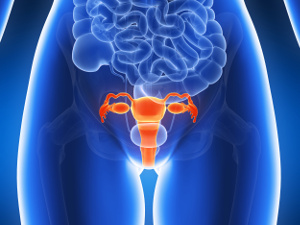Selenium’s effect on chemotherapy and radiation therapy in connection with cervical cancer
 Selenium is an essential trace element that affects the rate and development of several cancer types, including cervical cancer that is one of the most common cancer forms. Cervical cancer is often treated with a combination of radiation and chemotherapy and the side effects are known to affect the bone marrow and the formation of blood platelets and blood cells. However, supplementation with selenium yeast appears to counteract these adverse effects without interfering with the treatment, according to a study that is published in Frontiers in Nutrition.
Selenium is an essential trace element that affects the rate and development of several cancer types, including cervical cancer that is one of the most common cancer forms. Cervical cancer is often treated with a combination of radiation and chemotherapy and the side effects are known to affect the bone marrow and the formation of blood platelets and blood cells. However, supplementation with selenium yeast appears to counteract these adverse effects without interfering with the treatment, according to a study that is published in Frontiers in Nutrition.
Cervical cancer is one of the most widespread cancers, with 640,000 new cases and 342,000 deaths globally in 2020 alone. The therapies used to treat this cancer form are associated with notable side effects, which is why the scientists behind the new study wanted to see if supplementation with selenium yeast would have a mitigating effect.
The study was carried out on a total of 104 patients with stage IIB cervical cancer, which means that the cancer has spread outside the cervix into the surrounding tissues. The patients were divided into two groups, with one group getting 100 micrograms of selenium yeast twice daily for five weeks, and the other group receiving matching placebo. The patients in both groups received standard therapy, which included five weekly internal and external radiation therapy sessions. While receiving radiation therapy, the patients also got chemotherapy. During the course of the therapies, the scientists measured something called myelosuppression, where there is a drop in bone marrow activity, which lowers the formation of blood platelets and blood cells. They also looked at liver and kidney function, and they measured blood levels of selenium before, during, and after therapy in both groups.
Prior to therapy, the blood selenium level was pretty much the same in both groups. However, after therapy was started, a huge difference was observed when comparing the two groups. In the selenium-supplemented participants, the selenium levels increased significantly, whereas it plummeted in the non-supplemented group. Also, the occurrence of myelosuppression and thrombocytopenia (lack of blood platelets) caused by radiation and chemotherapy was lower in the selenium-supplemented group as compared to the placebo group. No differences were observed between the two groups with regard to liver and kidney damage.
Based on their observations, the scientists conclude that selenium yeast supplementation of patients with cervical cancer significantly increases blood selenium levels, while lowering hematological damage caused by chemotherapy and radiation. Because the selenium yeast did not interfere with standard therapy, the scientists view this as a promising strategy for protecting against side effects caused by chemotherapy and radiation therapy.
How does selenium yeast affect cancer in connection with chemo and radiation?
Selenium is needed to form a host of different selenoproteins that are of vital importance to various metabolic processes and help bolster the body’s antioxidant defense. The agricultural soil in large parts of Europe and many other places in the world is low in selenium, and that can increase the risk of cancer.
The study authors mention epidemiological research showing that selenium-enriched salt can lower the rate of primary liver cancer (hepatocellular carcinoma) by 35 percent.
Another study, the so-called Nutritional Prevention of Cancer (NPC) study, was the first double-blind, placebo-controlled study to investigate if selenium yeast could lower the risk of cancer. The study showed that daily supplementation with 200 micrograms of selenium yeast lowered the cancer rate by 37 percent and reduced cancer-related mortality by 50 percent. Selenium can also lower the risk of cervical cancer, and the study suggests that selenium yeast with a variety of different organic selenium species has the best effect.
Selenium’s ability to prevent cancer is a result of different mechanisms relating to energy turnover, immune defense, gene expression, apoptosis (programmed cell death), and anti-inflammatory processes. Selenium also supports the important GPX antioxidants that protect cells against oxidative stress caused by free radicals.
Radiation therapy is known to expose the body to a huge free radical load. This is needed to kill off cancer cells but, at the same time, it causes oxidative stress that can harm healthy cells, including bone marrow cells. There is extensive cell division in bone marrow, which makes it increasingly vulnerable to the side effects caused by chemotherapy.
Reference:
Mei Yang et al. Effects of selenium supplementation on concurrent chemoradiotherapy in patients with cervical cancer. A Randomized, double-blind, placebo-parallel controlled phase II clinical trial. Frontiers 2023



